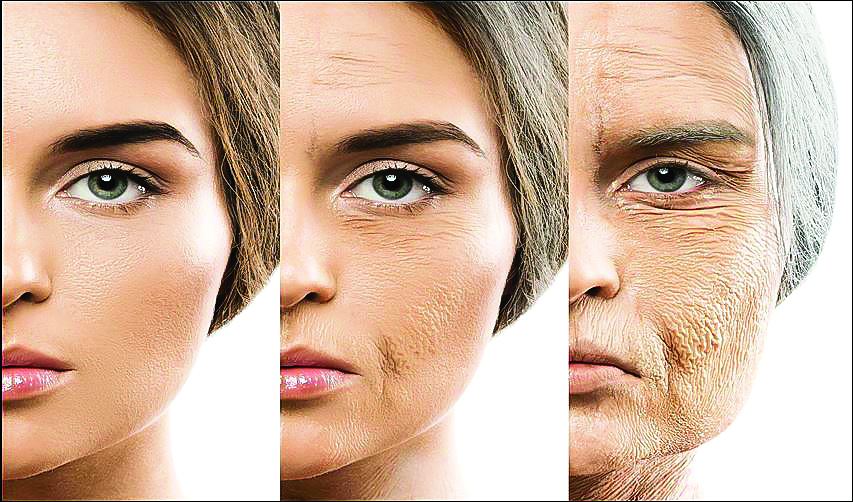Skin longevity, the ability of skin to maintain its youthful appearance and health over time, has been a timeless pursuit in the realm of beauty. From ancient skincare practices rooted in natural remedies to modern scientific advancements, the quest for youthful and radiant skin transcends cultures and generations. This article explores the historical significance, evolving perceptions, and contemporary approaches to achieving skin longevity as a fundamental aspect of beauty.
Historical Perspectives on Skin Longevity
The fascination with maintaining youthful skin dates back centuries, evident in the beauty rituals of ancient civilizations. In ancient Egypt, for instance, Cleopatra is renowned for her skincare regimen involving milk baths and the application of botanical oils. These practices aimed not only at preserving beauty but also at symbolizing status and vitality.
Similarly, in ancient China, traditional medicine emphasized the balance of qi (life force) and blood circulation to promote skin health and longevity. Herbal remedies and acupuncture were utilized to address skin concerns and maintain a youthful appearance.
Across cultures, from ancient Greece to India, herbal concoctions, natural oils, and techniques like exfoliation and massage were employed to enhance skin texture, reduce signs of aging, and uphold the skin’s natural radiance. These historical practices laid the foundation for understanding the importance of skincare in preserving beauty and health.
Evolution of Perceptions and Cultural Influences
Throughout history, societal norms and cultural ideals have influenced perceptions of beauty and the pursuit of skin longevity. In Renaissance Europe, fair, unblemished skin was considered a sign of wealth and aristocracy, leading to the use of cosmetics containing ingredients like lead and mercury, despite their harmful effects.
In modern times, global perspectives on beauty have become more inclusive, celebrating diverse skin tones and textures. However, the desire for healthy, radiant skin remains universal, driving innovations in skincare science and technology.
Contemporary Approaches to Skin Longevity
Today, skincare routines are tailored to individual skin types and concerns, incorporating ingredients backed by scientific research.
Preventive Care: Early intervention through daily skincare routines that include cleansing, moisturizing, and sun protection plays a crucial role in preventing premature aging and maintaining skin health.
Advanced Treatments: Skincare formulations now include potent ingredients that target specific skin concerns such as wrinkles, uneven tone, and loss of elasticity.
Nutrition and Lifestyle: The link between diet, lifestyle habits, and skin health is increasingly recognized. Nutrient-rich diets, hydration, adequate sleep, and stress management contribute to overall skin vitality and longevity.
Holistic Approaches: Integrative skincare practices such as Ayurveda, Traditional Chinese Medicine (TCM), and naturopathy emphasize a holistic approach to skincare, focusing on internal balance and external nourishment.
The Science Behind Skin Longevity
Scientific research has deepened our understanding of skin aging processes, highlighting factors such as oxidative stress, UV radiation, hormonal changes, and genetic predispositions. This knowledge informs the development of targeted skincare solutions that promote cellular repair, collagen synthesis, and skin barrier function.
Environmental Influences on Skin Health
Extrinsic factors, such as UV radiation, pollution, and lifestyle habits, significantly impact skin aging:
UV Radiation: UV rays penetrate the skin, causing damage to collagen fibers, which are essential for skin structure and elasticity. Over time, this leads to the formation of fine lines, wrinkles, and sagging skin.
Exposure to UV radiation generates free radicals within the skin cells. These reactive molecules can overwhelm the body’s antioxidant defenses, resulting in oxidative stress. This oxidative damage accelerates the aging process and contributes to skin conditions such as premature aging and skin cancer.
UV exposure stimulates melanin production, leading to hyperpigmentation such as sunspots, freckles, and uneven skin tone.
Pollution and Free Radicals: Pollutants generate free radicals upon contact with the skin. These free radicals induce oxidative stress, causing damage to cellular structures and accelerating skin aging.
Pollutants can impair collagen synthesis and accelerate its breakdown, leading to loss of skin firmness and elasticity.
Pollutants can compromise the skin’s natural barrier function, increasing susceptibility to irritation, inflammation, and dehydration.
Lifestyle Factors: Diets high in processed foods, sugars, and unhealthy fats can contribute to inflammation and oxidative stress in the body, reflecting on the skin as acne, dullness, and premature aging.
Tobacco smoke contains thousands of chemicals that impair blood flow to the skin, decrease collagen production, and accelerate the breakdown of elastin fibers. This results in wrinkles, sagging skin, and a dull complexion.
Excessive alcohol consumption dehydrates the skin, leading to dryness, inflammation, and impaired wound healing. It can also exacerbate existing skin conditions like rosacea and eczema.
Prolonged stress triggers the release of cortisol, a hormone that promotes inflammation and breaks down collagen. This can manifest as increased skin sensitivity, acne flare-ups, and accelerated aging.
While extrinsic factors pose challenges to skin health, adopting proactive measures can mitigate their impact. As one can use broad-spectrum sunscreen with SPF 30 or higher daily, even on cloudy days. Reapply every two hours and seek shade during peak UV hours, which are 10 AM to 4 PM.
Choose skincare products rich in antioxidants like vitamins C and E, green tea extract etc. These ingredients neutralize free radicals and protect against oxidative damage.
Use moisturizers containing ingredients that strengthen the skin barrier and prevent pollutants from penetrating deeply.
Maintain a balanced diet rich in antioxidants, vitamins, and omega-3 fatty acids. Stay hydrated, avoid smoking, limit alcohol intake, and practice stress management techniques such as yoga and meditation.
Embracing Skin Longevity as a Lifestyle
Skin longevity has evolved from ancient beauty rituals to a multidimensional approach encompassing science, tradition, and personal care. The pursuit of youthful, radiant skin reflects not only aesthetic ideals but also a commitment to health and self-care. Embracing a holistic skincare regimen that combines preventive measures, advanced treatments, and mindful lifestyle choices ensures that skin remains resilient and vibrant through the ages.

